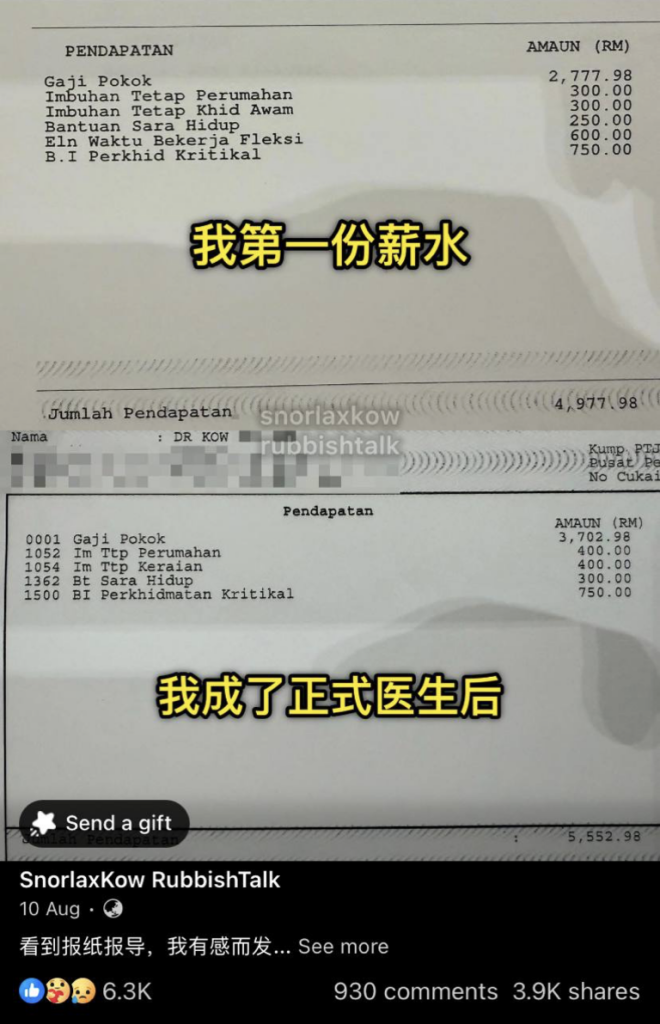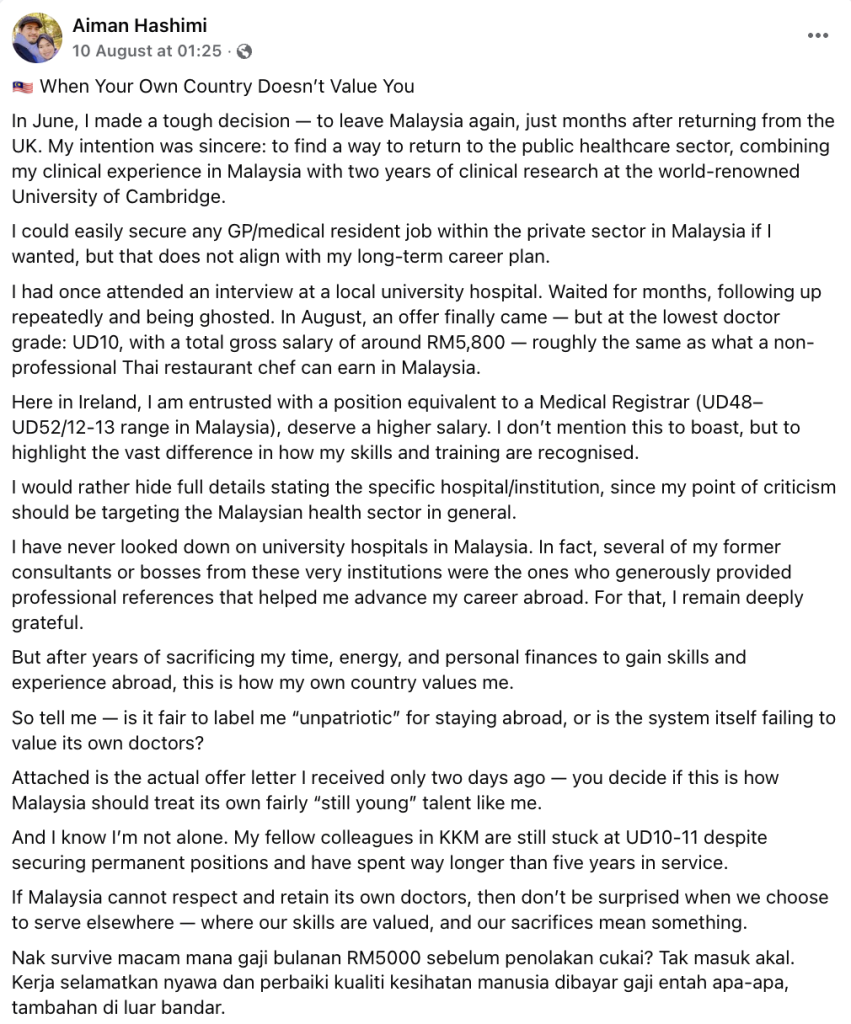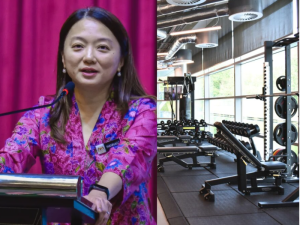
Image credit: Bernama
A total of 386 medical officers resigned from the Health Ministry in 2024, the Dewan Rakyat was told.
Health Minister Datuk Seri Dr Dzulkefly Ahmad said that 12 of the 386, or 3.1% of them, migrated overseas. He explained that the ministry has no authority to stop medical officers from joining the private sector, seeking jobs abroad, or being recruited by headhunters.
He noted that the migration of healthcare professionals is not unique to Malaysia and also occurs in other developed countries, largely driven by more competitive salaries abroad. “When converted into ringgit, salaries in developed or high-income countries are significantly higher,” he said in a written reply on Tuesday (Aug 19).
Dzulkefly was responding to a question by Muhammad Fawwaz Mohamad Jan (PN–Permatang Pauh) on the ministry’s efforts to address the migration of young doctors abroad due to stress and dissatisfaction with the contract system.
Medical officers claim being underpaid and overworked
Medical officers have made the harsh reality of how much they are being paid as a medical professional under the Health Ministry public on social media.

Image credit: Screen grab from SnorlaxKow RubbishTalk Facebook Page
The Malaysian doctor shared his journey of becoming a medical officer, from struggling with poor SPM results, to being sent abroad by his parents who sacrificed half a million ringgit of their own savings for his medical studies. He completed six years overseas and returned to Malaysia, bracing himself for the notoriously tough housemanship. Through postings in paediatrics, orthopaedics, surgery, obstetrics, medical, and emergency, he endured long hours, immense pressure, and steep learning curves. The medical posting, in particular, left him exhausted, with back-to-back shifts that stretched to nearly 30 hours, managing dozens of patients with little rest.
As a medical officer, the workload only grew heavier, with on-call duties lasting over 30 hours at a time and averaging 70-hour work weeks. Despite the sacrifices and responsibilities, he realized doctors were still underpaid, struggling even to afford basic housing. Seeing his seniors in their 50s still overworked and under-compensated, he decided not to pursue specialisation and eventually left the Health Ministry. While he maintains that he served every patient with dedication and upheld medical ethics, he concluded that passion and ethics alone cannot sustain a livelihood, as “ethics cannot put food on the table.
Another Malaysian shared about how he returned to Malaysia in hopes of returning to the public healthcare sector but after months of following up and being ghosted by the local university hospital he applied to, he was offered the lowest grade for doctors: UD10, with a gross salary of RM5,800. By then, he had already made the decision to move to Ireland, where he was offered a position higher than what the local university hospital offered him. He highlighted the stark difference of how his credentials were recognised.

Image credit: Screen grab from Aiman Hashimi’s Facebook
Health Ministry’s measures to retain medical officers
To curb the outflow and retain talent, the ministry has introduced several initiatives, particularly by increasing permanent positions for contract doctors. Since 2023, 13,552 contract medical officers have been offered permanent posts, with more than 4,000 appointments made annually in cooperation with central agencies.
Grade UD9 medical officers are offered a competitive starting salary of RM5,380 – the highest among public service schemes – with an annual increment of up to RM225. In addition, doctors receive special allowances, including RM80 per hour for locum work, RM80–RM220 per night for on-call duties, and RM80 per hour for elective surgeries. Career advancement opportunities are also available, such as time-based promotions from UD9 to UD14 within 12 years, and lateral entry into UD10 for contract officers who transition to permanent roles.
The ministry has also expanded specialist training opportunities. Beginning in 2025, 600 slots will be available annually under the “Parallel Pathway” programme across 14 specialties, a sharp increase from just 52 slots in 2022.
Dzulkefly stressed that retaining medical officers is a complex, long-term issue requiring collaboration with various agencies. “We will continue engaging with federal stakeholders to improve incentives and benefits, ensuring our doctors remain in public service,” he said.
He also highlighted that mental health and psychosocial support services are provided to medical officers to help manage work-related stress.
Source: NST, The Star
Follow Wah Piang for more updates.





